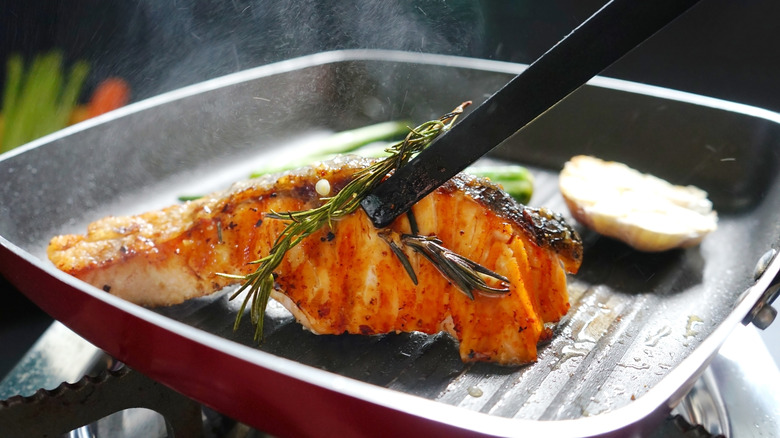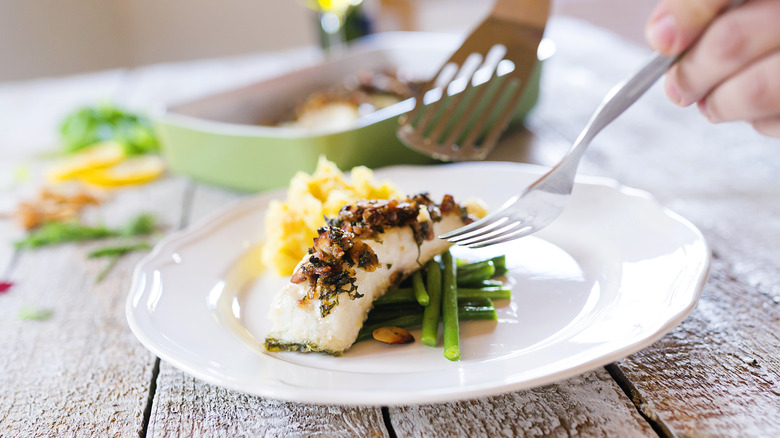Why It's So Important To Be Delicate When Cooking Fish
When you get tired of your favorite poultry, pork, and red meat dishes, cooking fish at home can be a wonderful addition to the dinner table. From Mediterranean baked cod to grilled barramundi to poached black bass, recipes using fish showcase the protein's often more delicate flavor and texture. Fish is generally a very healthy option, which doesn't hurt the case for preparing it more often. According to Healthline, many types of fish are an excellent source of key nutrients including iodine and omega-3 fatty acids, and regularly including fish in your diet may help reduce the risk of heart attacks and strokes, as well as help prevent loss of vision.
There are many reliable ways to cook fish, from grilling to steaming to poaching — but one thing all these methods have in common is that they require you to handle the fish with delicacy. Generally, fish is delicate due to the nature of its muscle fibers and connective tissue, according to Exploratorium. Therefore, it's important to treat fish with a light hand when cooking it.
Try not to move fish around too much when cooking it
According to Exploratorium, fish has shorter muscle fibers and less connective tissue than meat. This makes the former more prone to breaking; therefore, it's important to treat fish delicately when cooking it. According to Food & Wine, home cooks should try to avoid moving fish around too much as it cooks.
"Fish is very delicate; the more you move it in the pan, the more juice it loses, causing the meat to break," chef Roberto Bellitti told the outlet. "The less you touch the fish, the better."
Martha Stewart has a few key tips for cooking fish without causing it to fall apart. One recommendation is to pan-sear fish in a hot skillet. Start by heating a cast iron or stainless steel skillet to very hot, adding a small amount of high smoke point fat such as canola oil, and adding a room-temperature, well-seasoned fish filet to the pan. Both the heat and the salt will help prevent the fish from sticking, the outlet notes, and it's only necessary to flip the fish once — doing so repeatedly can tear the flesh and prevent the skin from crisping. When the fish is ready to be flipped, it will release naturally from the pan, so grab your fish spatula — a thin, flexible type that more easily slips under delicate fish — and flip. Resist the urge to fiddle, and you'll be rewarded with a perfectly intact filet.

